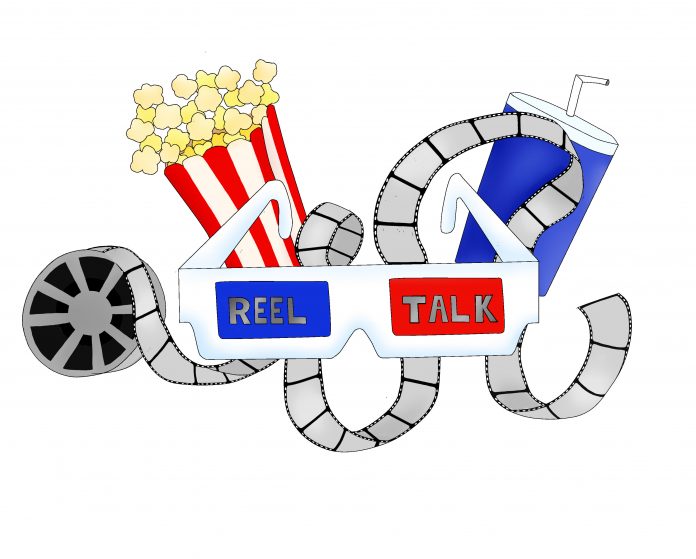(Light spoilers with a side of “be careful!”)
I watched “Shazam!” a couple of weeks ago, but didn’t get to writing about it until today because I was locked in a box with an angry feral animal called FINALS SEASON and it has demanded all of my attention up until this very moment. “Shazam!” is DC’s newest superhero film, and it takes itself much less seriously than the likes of “Man of Steel” or “Batman v. Superman,” which is surely a blessing, and also a good sign that DC’s both aware of and addressing some of the problems with its previous superhero movies. But the actual plot of “Shazam!” interests me significantly less than its genre; it’s not just a hero film or a comedy, but a coming-of-age movie, ultimately about childhood, finding yourself and your home, and realizing when you’re growing up a little too fast.
Oh, and the seven deadly sins, for some reason.
“You should rely on yourself rather than counting on others to save you” seems like a believable character arc for a hero, right? At least, until you realize that “Shazam!” opens up with the origin story of the villain. Since childhood, the evil Doctor Silvana has believed the polar opposite of what our hero Billy Batson will eventually learn, and will do whatever it takes to overcome this mysterious new hero and claim his powers for himself; it’s a pretty effective setup for a rivalry. But after a dismal DC opening and a couple of rapid tone shifts, “Shazam!” reveals its true morals and motives: to teach us about the power of family.
I was extremely pleasantly surprised by this movie; I think I was expecting it to be trying its best to be DC’s “Deadpool.” That didn’t happen, mercifully, and I ended up laughing so hard I cried. “Shazam!” is heartwarming and hilarious, just pure, unadulterated (get it?) fun. It’s full of ridiculously cheesy jokes and child actors shooting one-liners at CGI monsters, but my lord is it wholesome. Aside from the noticeable lack of effort to keep the non-super foster kids safe from stray bullets and evil spirits, this film goes out of its way to put our troubled teenage hero into a safe, loving environment full of people who care about him and are willing to lend him a shoulder to lean on. It isn’t something that all superpowered kids get, but it was incredibly important to Billy’s coming-of-age arc. Take away that love and support, and Billy might have turned out a lot like Thad — out to save himself, by himself.
While we’re speaking of things that bolster Billy’s self improvement, there’s nothing like being told that you’re not the “chosen one,” but you’ll do. Don’t remember this banger of a plot point? Neither do I; I thought it was really ambiguous as to whether the DC Extended Universe actually meant for us to interpret this version of Billy Batson as being the “pure of heart” champion that the wizard was searching for. Zachary Levi himself seems to think that the character is worthy, but everyone I saw the film with interpreted the wizard’s choice as a last resort. Personally, I wish “Shazam!” had leaned into this alternate interpretation a little further, diverged a little more from the comics. I like to imagine Billy finding Shazam dying on the floor, and that dumb wizard telling him outright that he’s not pure of heart, but he’s here, so why not? We leave Billy attempting to live up to a legacy he doesn’t think he’s deserving of, and we have a villain obsessed with Billy’s supposed “purity” who’s doomed to discover that people are more nuanced than that.
Perhaps my favorite thing about this movie is its premise: a kid in an adult superhero’s body is such a great idea. You’ve got the action and suspense of a superhero film, but the good-natured comedy and heart of a body-swapping, coming-of-age TV movie from the nineties. And trust me, it’s a way better combination than it sounds. The movie allowed me to look at superheroes the way I used to as a kid, imagining my own set of powers and how I’d use them. Truth be told, I’d probably have used them kind of like Billy did at first: with wonder, with excitement, with reckless abandon, and with only using your powers to goof around, charge people’s phones, and busk in the middle of the street. “Shazam!” uses its admittedly kind–of–silly premise to help its protagonist find out about great power having great responsibility, which in turn allows him to grow up, learn to let go, face his fears, and muster the courage to step up to the plate, even when he doesn’t think he’s worthy of the challenge.
In the end, I don’t know if Billy Batson himself is pure of heart, but this film definitely is.

